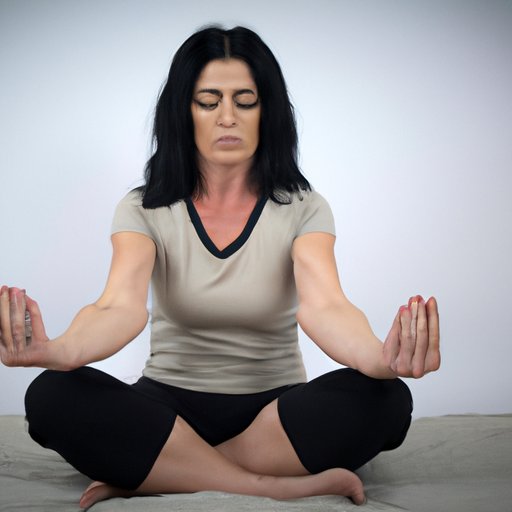
Anxiety: How to Reduce It Naturally
Do you ever feel overwhelmed by stress and anxiety? Anxiety can have a negative impact on daily life, making it difficult to focus, relax, or enjoy activities that you once loved. While medication is often used to treat anxiety, there are also plenty of natural remedies that can help. In this article, we’ll explore some of the best natural ways to reduce anxiety.
Getting Physical Exercise
Physical exercise is one of the most effective ways to reduce anxiety. Exercise releases endorphins in the brain, which are natural mood boosters. Additionally, exercise provides a healthy outlet for stress and anxiety, allowing you to work off excess energy in a positive way.
Any type of exercise can be beneficial in reducing anxiety, but some types may be more effective than others. For example, yoga has been shown to help reduce anxiety levels, as it incorporates both exercise and mindfulness techniques. Cardiovascular exercise, such as running or cycling, can also be particularly effective for reducing anxiety levels.
If you’re new to exercise, start small and work your way up to more challenging workouts. Even brisk walking can be beneficial, as it gets your heart rate up and helps release endorphins. Try to incorporate exercise into your daily routine, even if it’s just a quick walk around the block during your lunch break or a few sun salutations in the morning before work.
Mindfulness Meditation
Another highly effective way to reduce anxiety is through mindfulness meditation. Mindfulness is the practice of staying present and focused in the moment, without judgment or distraction. By practicing mindfulness, you can learn to manage your anxiety more effectively.
To start a mindfulness meditation practice, find a quiet and comfortable place where you won’t be interrupted. Sit in a comfortable position with your back straight, and begin to focus on your breath. Notice the sensation of your breath as it moves in and out of your body. If your mind starts to wander, gently bring your focus back to your breath.
You can start with just a few minutes of mindfulness meditation each day and gradually increase your practice over time. It can be helpful to use a guided meditation app or video to get started.
Deep Breathing Exercises
Deep breathing exercises can be highly effective in reducing anxiety. When you’re feeling anxious, your breathing often becomes shallow and rapid. By using deep breathing exercises, you can signal to your body that it’s time to relax and slow down.
There are several different types of deep breathing exercises that you can try. One is called diaphragmatic breathing, which involves breathing in deeply while focusing on the movement of your diaphragm. Another option is progressive muscle relaxation, which helps you become more aware of your body and its tension levels.
Try to incorporate deep breathing exercises into your daily routine, such as taking a few deep breaths before a stressful meeting or practicing meditation with deep breathing exercises included. Simply taking a few deep breaths throughout the day can also help lower anxiety levels.
Limiting Caffeine and Alcohol Intake
Caffeine and alcohol can both increase anxiety levels, so it’s important to be mindful of your intake. Caffeine is a stimulant that can cause jitters, anxiety, and even panic attacks in some people. Alcohol, on the other hand, may initially help you relax, but can also lead to increased anxiety and poor sleep quality.
If you notice that caffeine or alcohol exacerbates your anxiety, try to limit your intake. This may involve cutting out caffeine or alcohol altogether, or simply reducing your consumption. You can also try replacing caffeine with herbal tea or water and replacing alcohol with non-alcoholic options.
Getting Enough Sleep
Good sleep hygiene is essential for reducing anxiety levels. When you’re sleep-deprived, it’s more difficult to manage stress and your overall mood can be negatively affected.
To improve your sleep hygiene, try to establish a regular bedtime routine. This might include avoiding screens for an hour before bed, drinking herbal tea, or taking a warm bath. It’s also important to avoid activities that can disrupt sleep, such as working on your laptop or watching TV in bed.
Conclusion
Reducing anxiety doesn’t always require medication. Natural remedies, such as exercise, mindfulness, deep breathing, limiting caffeine and alcohol intake, and improving sleep hygiene, can all be effective in reducing anxiety. Try incorporating some of these natural anxiety-reducing techniques into your daily routine and see how they work for you.




